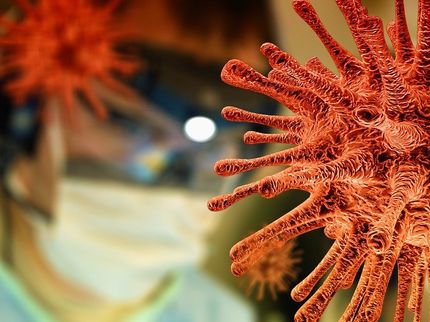How the porcine trachea improves the testing of respiratory drugs
Upcycling of slaughterhouse waste
Advertisement
Researchers at Biberach University of Applied Sciences (HBC) have developed a new test model to test the tolerability of complex medications such as inhaled antibodies. They use cells from the trachea of pigs for this purpose. This method could improve the development of other biomolecules for inhalation in the future. The results were recently published by a team led by Prof. Dr. Katharina Schindowski Zimmermann from the Institute of Applied Biotechnology at HBC in the journal "In Vitro Models".
"Until now, complex biomolecules have mainly been administered as infusions or injections, but this is currently changing. The approach of administering proteins via the respiratory tract has experienced a new upswing in the coronavirus era," reports Zimmermann. More and more research groups and pharmaceutical companies are therefore testing the inhalation of these active ingredients in order to bring them closer to potential areas of application in the respiratory tract. This saves the "detour" via the blood, where a lot of the active ingredient is of no use. The challenge, however, is that proteins are very large molecules, expensive to produce and much more sensitive than traditional chemically synthesized active ingredients. "In our model, we can check whether the biomolecule still has the necessary quality," says Zimmermann. The researchers also examine how cells of the airway mucosa react to the active ingredients and absorb them.
"As our airways represent an important barrier to the outside world, many immune cells are contained in mucous membranes that react directly with the administered active ingredient and could activate the immune system," explains Rebecca Rittersberger. According to the doctoral student, who is the first author of the publication together with her colleague Janik Martin, such aspects need to be taken into account if the effect is to be optimized and side effects reduced. Good models are therefore necessary to get as close as possible to reality.
So far, cell lines have been considered the gold standard in this field of research. "But these are cancer cells. They have lost many of the functions of the normal mucosa," explain the researchers. That's why they isolated cells from a healthy organism. And why from pigs in particular? "The dimensions are similar, and the pig is also very close to humans in immunological terms," explains Rittersberger. The researchers obtain the pig air tubes from slaughterhouse waste. "Waste that is extremely valuable to us," explains Martin.
The team spent months optimizing the best way to cultivate the pig cells. Using various methods, the scientists also looked closely at how the model is structured and how closely it resembles the real mucosa. Are there cells that produce mucus? And what about the cilia that transport it out of the airways? "When you look at a model like this, you realize just how complicated the whole system is," remarks Martin. Many of the natural cell types and structures have already been observed, such as receptors, which are particularly important for the transport of antibodies. "Initially, we didn't have that many cilia in this model," adds Rittersberger, "but we have now improved that too." Another model - with active immune cells - is also already in the works. "We're not running out of ideas on how we can improve things," summarizes Professor Katharina Zimmermann.
Note: This article has been translated using a computer system without human intervention. LUMITOS offers these automatic translations to present a wider range of current news. Since this article has been translated with automatic translation, it is possible that it contains errors in vocabulary, syntax or grammar. The original article in German can be found here.
Original publication
Janik Martin, Rebecca Rittersberger, Simon Treitler, Patrick Kopp, Anit Ibraimi, Gabriel Koslowski, Max Sickinger, Annabelle Dabbars, Katharina Schindowski; "Characterization of a primary cellular airway model for inhalative drug delivery in comparison with the established permanent cell lines CaLu3 and RPMI 2650"; In vitro models, Volume 3, 2024-11-25
Other news from the department science
Most read news
More news from our other portals
See the theme worlds for related content
Topic world Antibodies
Antibodies are specialized molecules of our immune system that can specifically recognize and neutralize pathogens or foreign substances. Antibody research in biotech and pharma has recognized this natural defense potential and is working intensively to make it therapeutically useful. From monoclonal antibodies used against cancer or autoimmune diseases to antibody-drug conjugates that specifically transport drugs to disease cells - the possibilities are enormous

Topic world Antibodies
Antibodies are specialized molecules of our immune system that can specifically recognize and neutralize pathogens or foreign substances. Antibody research in biotech and pharma has recognized this natural defense potential and is working intensively to make it therapeutically useful. From monoclonal antibodies used against cancer or autoimmune diseases to antibody-drug conjugates that specifically transport drugs to disease cells - the possibilities are enormous
























































